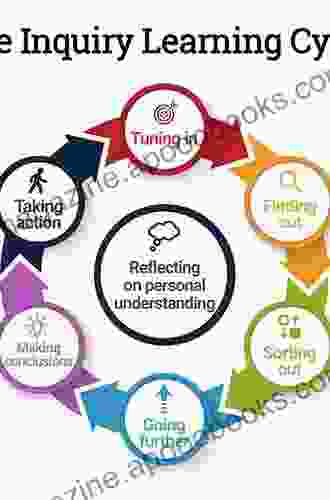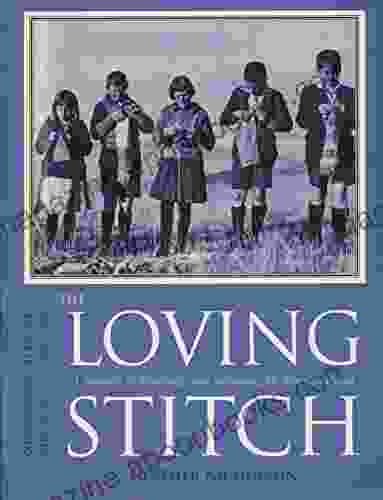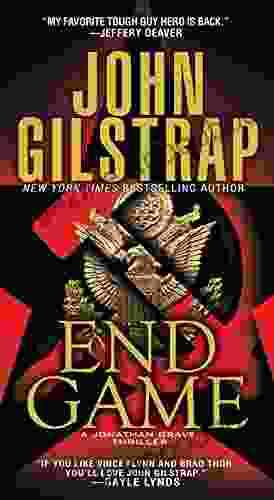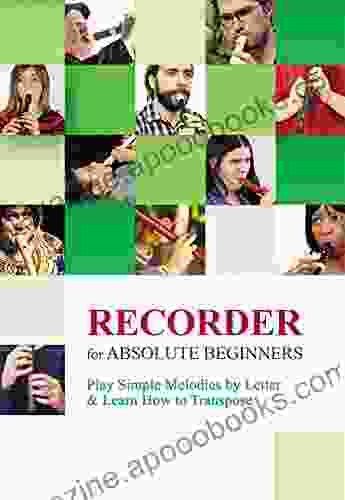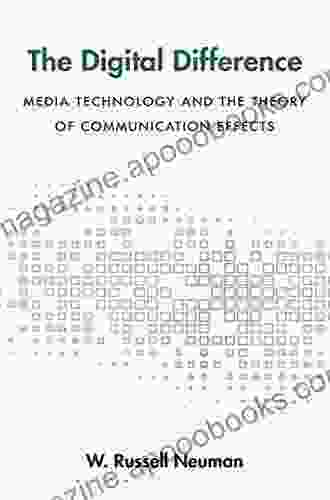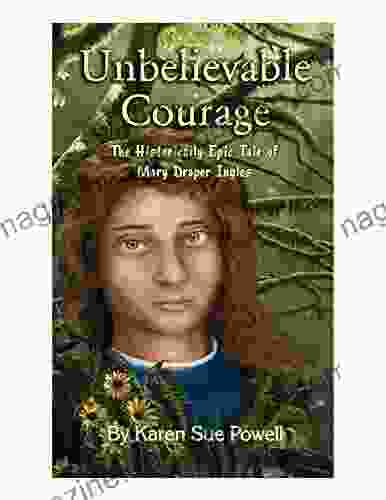Coaching Inquiry Oriented Learning Communities: The Ultimate Guide to Empowering Students

In today's rapidly changing world, it's more important than ever to equip students with the skills they need to succeed. Coaching Inquiry Oriented Learning Communities (CIOLCs) offer a transformative approach to education that empowers students to become independent learners, critical thinkers, and effective communicators.
4.7 out of 5
| Language | : | English |
| File size | : | 2587 KB |
| Text-to-Speech | : | Enabled |
| Enhanced typesetting | : | Enabled |
| Word Wise | : | Enabled |
| Print length | : | 205 pages |
| Screen Reader | : | Supported |
This comprehensive guide provides you with all the tools and strategies you need to create a vibrant and engaging CIolc in your classroom. You'll learn how to:
- Foster a culture of inquiry and critical thinking
- Develop students' problem-solving and decision-making skills
- Promote collaboration and communication
- Encourage creativity and innovation
- Assess student learning in a meaningful and authentic way
With real-world examples and practical tips, this guide will help you transform your classroom into a place where students are excited to learn and grow. They will become more confident in their abilities, more engaged in their learning, and better prepared for the challenges of the 21st century.
What is a Coaching Inquiry Oriented Learning Community?
A Coaching Inquiry Oriented Learning Community is a student-centered learning environment where students are encouraged to ask questions, explore ideas, and solve problems collaboratively. The teacher's role is to guide and support students as they learn, rather than simply delivering information.
In a CIolc, students are given the opportunity to:
- Develop their own questions and investigations
- Work collaboratively with peers to solve problems
- Reflect on their learning and identify areas for improvement
- Take ownership of their learning
This type of learning environment fosters critical thinking, problem-solving, collaboration, communication, and creativity. Students learn to become independent learners who are able to apply their knowledge and skills to new situations.
The Benefits of Coaching Inquiry Oriented Learning Communities
There are many benefits to implementing CIOLCs in your classroom, including:
- Increased student engagement and motivation
- Improved student learning outcomes
- Development of critical thinking skills
- Enhanced problem-solving abilities
- Improved collaboration and communication skills
- Increased creativity and innovation
- Development of independent learning skills
- Improved self-assessment and reflection skills
CIOLCs can help you create a classroom environment where students are excited to learn and grow. They will become more confident in their abilities, more engaged in their learning, and better prepared for the challenges of the 21st century.
How to Create a Coaching Inquiry Oriented Learning Community
Creating a CIolc in your classroom takes time and effort, but it is well worth it. The following steps will help you get started:
- Establish a culture of inquiry and critical thinking. This means encouraging students to ask questions, explore ideas, and challenge the status quo. You can do this by modeling inquiry yourself, providing students with opportunities to investigate topics of their interest, and creating a classroom environment where it is safe to take risks.
- Develop students' problem-solving and decision-making skills. This involves teaching students how to identify problems, gather information, generate solutions, and make decisions. You can do this by providing students with real-world problems to solve, giving them opportunities to work collaboratively, and encouraging them to reflect on their decision-making process.
- Promote collaboration and communication. CIOLCs are built on collaboration and communication. Students learn from each other by sharing ideas, working together on projects, and giving each other feedback. You can promote collaboration by creating opportunities for students to work in groups, providing them with tools for sharing their work, and encouraging them to give each other feedback.
- Encourage creativity and innovation. Creativity and innovation are essential for success in the 21st century. CIOLCs provide students with the space and time to explore their creativity and develop new ideas. You can encourage creativity by providing students with open-ended tasks, giving them opportunities to experiment, and celebrating their unique perspectives.
- Assess student learning in a meaningful and authentic way. Assessment in CIOLCs is focused on assessing students' understanding of concepts and their ability to apply their learning to new situations. You can do this by using a variety of assessment methods, such as portfolios,
4.7 out of 5
| Language | : | English |
| File size | : | 2587 KB |
| Text-to-Speech | : | Enabled |
| Enhanced typesetting | : | Enabled |
| Word Wise | : | Enabled |
| Print length | : | 205 pages |
| Screen Reader | : | Supported |
Do you want to contribute by writing guest posts on this blog?
Please contact us and send us a resume of previous articles that you have written.
 Book
Book Novel
Novel Page
Page Chapter
Chapter Text
Text Story
Story Genre
Genre Reader
Reader Library
Library Paperback
Paperback E-book
E-book Magazine
Magazine Newspaper
Newspaper Paragraph
Paragraph Sentence
Sentence Bookmark
Bookmark Shelf
Shelf Glossary
Glossary Bibliography
Bibliography Foreword
Foreword Preface
Preface Synopsis
Synopsis Annotation
Annotation Footnote
Footnote Manuscript
Manuscript Scroll
Scroll Codex
Codex Tome
Tome Bestseller
Bestseller Classics
Classics Library card
Library card Narrative
Narrative Biography
Biography Autobiography
Autobiography Memoir
Memoir Reference
Reference Encyclopedia
Encyclopedia Ian Stables
Ian Stables Stephen Ashley
Stephen Ashley Will Larson
Will Larson Henry Hampton
Henry Hampton Heather L Clark
Heather L Clark Leigh Stein
Leigh Stein Patrick Barwise
Patrick Barwise Harry Harrison
Harry Harrison Iona Whishaw
Iona Whishaw Leighton Andrews
Leighton Andrews Ian Reifowitz
Ian Reifowitz Ovid
Ovid Ian Olney
Ian Olney Hannah West
Hannah West Louise Derman Sparks
Louise Derman Sparks Lata Sony
Lata Sony Kelly Nielson
Kelly Nielson Lori D Ginzberg
Lori D Ginzberg Indro Neri
Indro Neri Ingar Brunnett
Ingar Brunnett
Light bulbAdvertise smarter! Our strategic ad space ensures maximum exposure. Reserve your spot today!

 Robert Louis StevensonEscape the Tourist Traps and Discover the Hidden Gems of Naples with...
Robert Louis StevensonEscape the Tourist Traps and Discover the Hidden Gems of Naples with...
 Eddie PowellAdventures of the Thrice Smitten Dog Parent: A Journey of Hope, Heartbreak,...
Eddie PowellAdventures of the Thrice Smitten Dog Parent: A Journey of Hope, Heartbreak,... Edwin CoxFollow ·10.5k
Edwin CoxFollow ·10.5k Ralph Waldo EmersonFollow ·18.1k
Ralph Waldo EmersonFollow ·18.1k Jesus MitchellFollow ·15.3k
Jesus MitchellFollow ·15.3k Anthony WellsFollow ·13.6k
Anthony WellsFollow ·13.6k Corbin PowellFollow ·19.4k
Corbin PowellFollow ·19.4k Kendall WardFollow ·13.8k
Kendall WardFollow ·13.8k Denzel HayesFollow ·11.8k
Denzel HayesFollow ·11.8k Robbie CarterFollow ·16.9k
Robbie CarterFollow ·16.9k
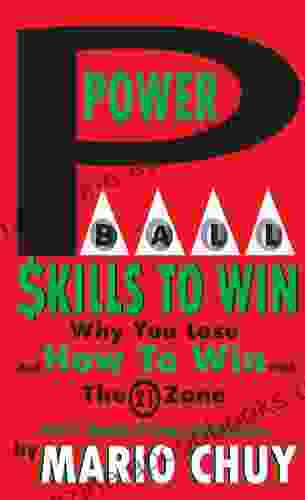
 Stanley Bell
Stanley BellUnlock the Secrets of Powerball Success: Master the...
Prepare to shatter the odds and transform...
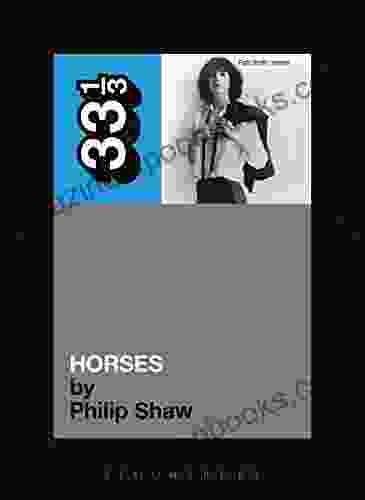
 Ernest J. Gaines
Ernest J. GainesPatti Smith Horses 33 55: A Photographic Journey into a...
Journey into the raw and...

 Isaiah Price
Isaiah PriceMoyamoya Disease Diagnosis And Treatment: A Comprehensive...
Moyamoya Disease...
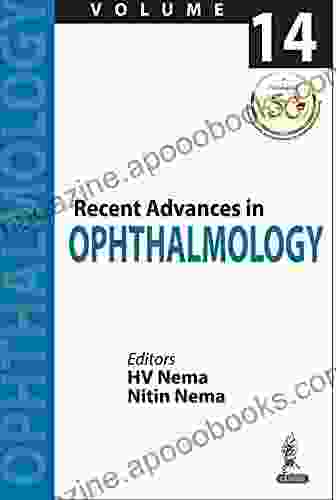
 Joseph Foster
Joseph FosterRecent Advances in Ophthalmology, Volume 14
Editor: [Editor's...
4.7 out of 5
| Language | : | English |
| File size | : | 2587 KB |
| Text-to-Speech | : | Enabled |
| Enhanced typesetting | : | Enabled |
| Word Wise | : | Enabled |
| Print length | : | 205 pages |
| Screen Reader | : | Supported |


